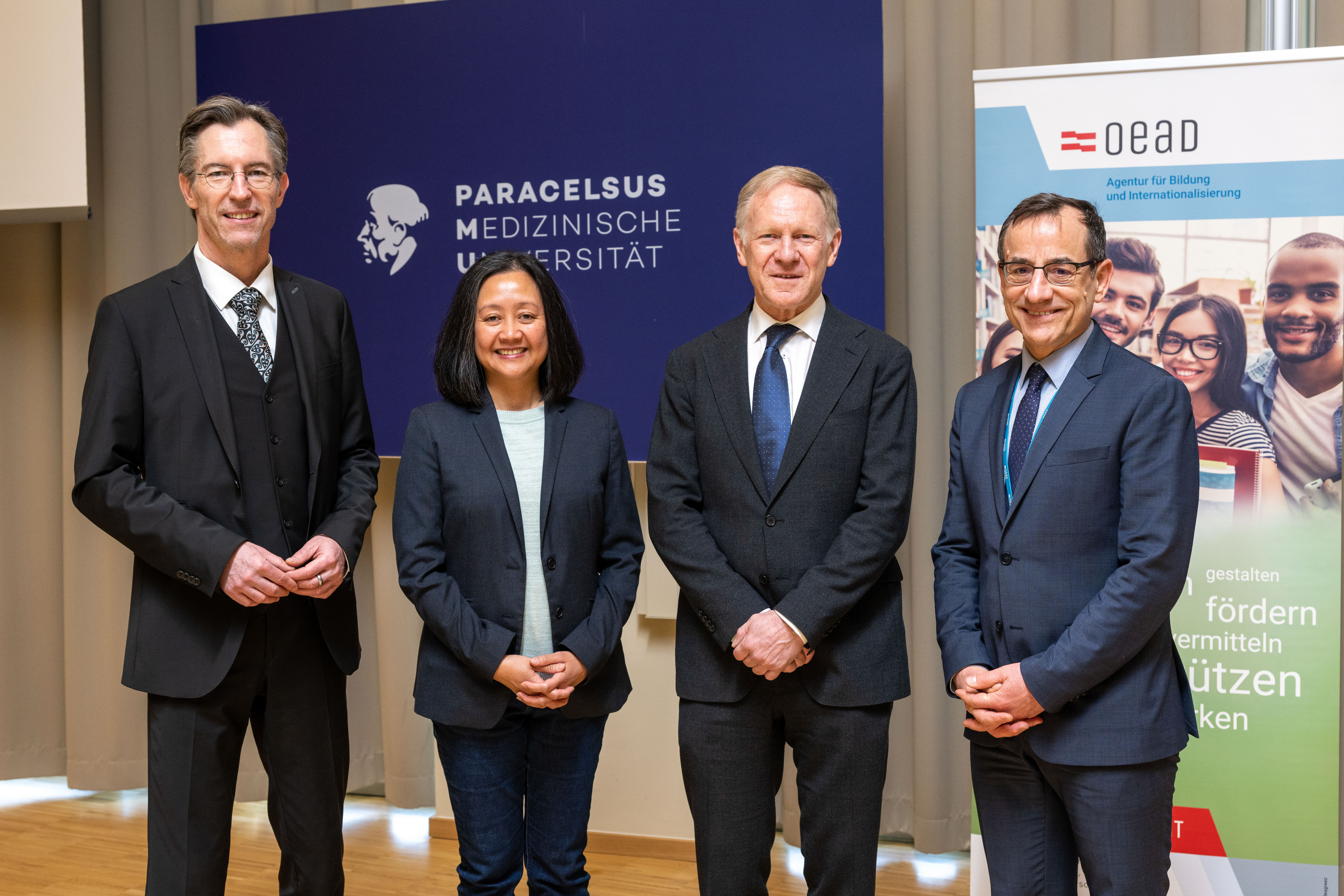“Internationalisation” of higher education institutions – opportunities for lecturers, students and Austria’s positioning in science
This year’s Bologna Day – Austria’s largest annual conference on the implementation of a common European Higher Education Area and networking conference on HMIS2030 – broke new thematic ground on 16 March 2023. With a focus on “Internationalisation of studies and teaching at higher education institutions: role and contribution of human resources development” the conference put those responsible for human resources management and human resources development in the foreground for the first time.
The “internationality” of a higher education institution can only supposedly be shown by the number of international students and lecturers, mobility figures, joint international study programmes and teaching in foreign languages. These indicators continuously reflect the following questions of the respective higher education institution: Why does all this matter at all? How should we understand internationalisation of teaching and studies apart from traditional international mobility, where should we start in concrete terms and what added value do higher education administrations and education policy expect?
The minister of education, science and research Polaschek emphasised in advance: “Internationalisation is not an end in itself but must be strategically integrated into everyday university life and practised. Internationalisation of studies and teaching, as envisaged by the National Higher Education Mobility and Internationalisation Strategy 2020-2030 (HMIS2030), should result in a university campus that integrates international cooperation of science, research and business into teaching and everyday student life. It is precisely this cooperation that will provide new opportunities for Austria and further advance scientific progress. This international study environment will constitute a benefit for Austrian students and attract international talent to Austria.”
Anchoring the intended internationalisation at the higher education institutions requires appropriately trained general administrative staff as well as teaching staff who are able to adequately prepare themselves for teaching an international student body in the “international classroom”. “Staff mobility” is a buzzword that is often mentioned in this context, activity-based mobility of higher education staff, which is also promoted within the framework of the European education programme Erasmus+. Moreover it is important to consider higher education staff’s commitment in the respective careers and to allow the teaching staff’s own experiences from exchanges with peers in other countries to be integrated into their teaching.
The OeAD’s managing director Jakob Calice generally emphasises the importance of internationality for Austria’s higher education institutions and highlights the OeAD’s part and contribution: “The exciting thing is the gradual enlargement of stakeholder groups when it comes to internationalisation. Until a few years ago internationalisation was associated with ‘international mobility’. Through the funding programme Erasmus+ the OeAD not only accompanies the mobility of students, lecturers and general staff but is also very interested in how the experience gained from this is transferred to the higher education institutions – what new didactic approaches do the mobile persons bring with them, what working methods, what teaching content, or intercultural skills?" This transfer of knowledge has long since ceased to concern only the mobile persons themselves; what is needed here is broad support with a view to a higher education institution’s entire internationalisation strategy. And incentive systems in the careers.
Ideally, questions relating to internationalisation of studies, teaching and the campus in general should be discussed with those responsible for personnel management and personnel development at the higher education institutions and appropriate measures should be developed jointly because they are central to the discourse on the (further) development of didactic and intercultural skills and foreign language skills of lecturers and general higher education staff.
More than 160 interested persons reflected on practical examples of foreign language acquisition, internationalisation at home and knowledge transfer together with the head of section Elmar Pichl (Federal Ministry of Education, Science and Research (BMBWF)) and the Spanish higher education expert Marina Casals Sala (Director of International Relations at the Universitat Rovira i Virgili in Tarragona). Further recommendations were elaborated in workshops and will soon be published on the on the OeAD’s website at www.oead.at.
More pictures are available in the APA photo gallery
Enquiries and Contact:
Austrian Federal Ministry of Education, Science and Research
Andreas Jilly
Spokesperson of the Federal Minister
+43 1 53120-5025
andreas.jilly@bmbwf.gv.at
www.bmbwf.gv.at
OeAD – Austria’s Agency for Education and Internationalisation
Mag. Ursula Hilmar
Spokesperson
+43 1 53408-270
presse@oead.at
www.oead.at

